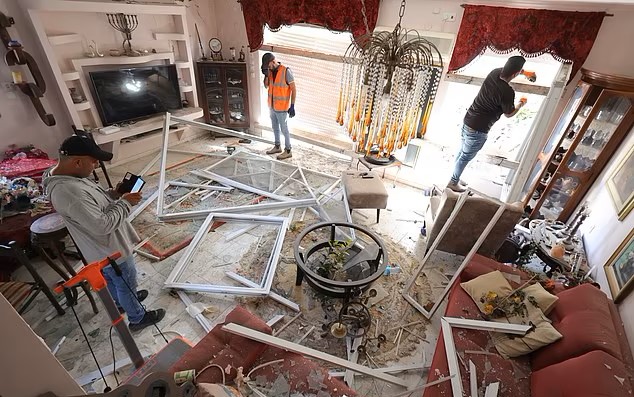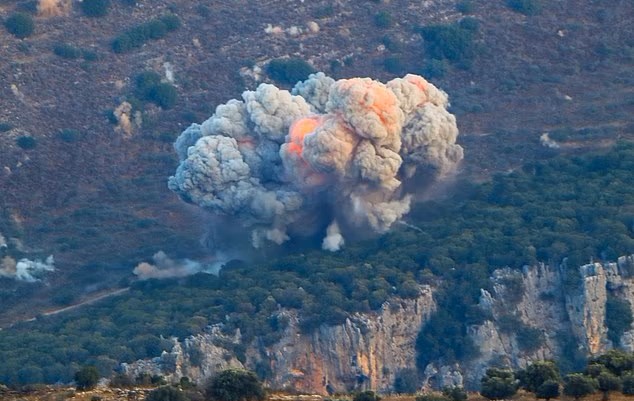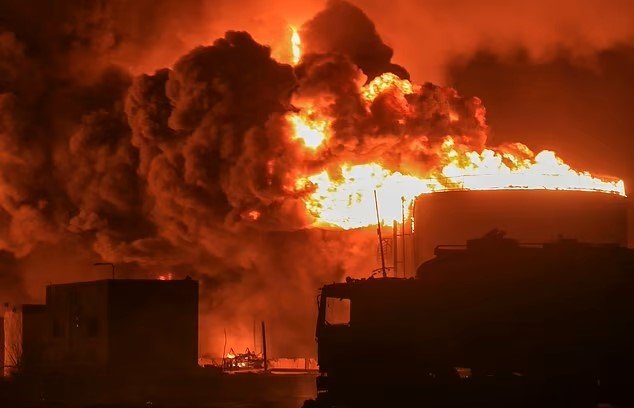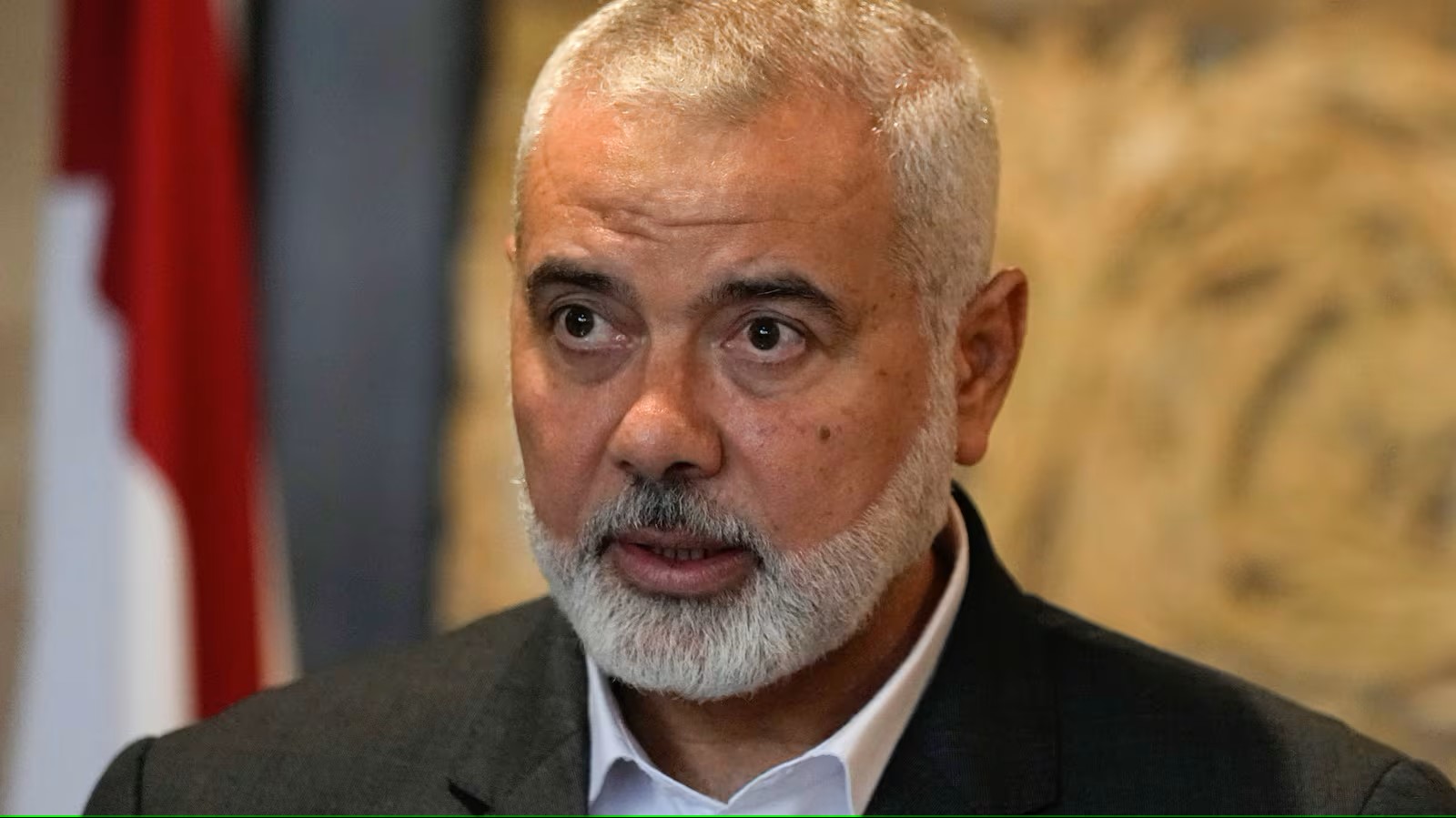Tensions between Israel and the Lebanon-based Hezbollah militant group escalated on Sunday as the two exchanged heavy fire across the Israel-Lebanon border.
The conflict, which has been simmering since the war in Gaza started in early October 2023, intensified following a barrage of Hezbollah rocket and drone attacks on Israel on Saturday, prompting fears of a wider regional conflict.

The Israel Defense Forces (IDF) said Hezbollah launched approximately 150 rockets, drones, and cruise missiles on Israel, most of which however were intercepted by Israeli air defenses. Yet some penetrated and struck residential areas, causing damage to homes, vehicles, and infrastructure, injuring three persons with shrapnel, and several others.

In retaliation, Israeli fighter jets on Sunday struck multiple Hezbollah targets in southern Lebanon. The IDF claims its strikes were aimed at disabling Hezbollah rocket launchers and military installations.
Meanwhile, Hezbollah counter-claimed its attack on Saturday was in response to an Israeli airstrike that occurred on Friday that killed 45 people in a densely populated Beirut suburb, including senior Hezbollah leaders.
During a funeral procession for senior Hezbollah commander Ibrahim Aqil, who was killed in the airstrike, the group’s deputy leader, Naim Qassem, vowed that Hezbollah has now entered a “new phase” of war with Israel – whatever he meant by that.




The Islamic Resistance in Iraq – an Iranian-backed militia, also launched drones toward Israel on Sunday, in solidarity with Hezbollah. Israeli air defenses intercepted the drones, and no injuries were reported, but it signaled how widespread the conflict was getting.




Israeli Prime Minister, Benjamin Netanyahu, reaffirmed Israel’s determination to restore dominance and security in its northern region, boasting that Israel has “inflicted on Hezbollah a sequence of blows that they did not imagine.”
He reasserted Israel’s right to defend itself, saying “No country can tolerate shooting at its residents, shooting at its cities — and we, the state of Israel, will not tolerate it either. We will do everything necessary to restore security,” – but he seemed to gloss over the fact that every conflict has a history.

Hezbollah’s involvement in this conflict came on the heels of the palestine-conflict/" target="_blank" rel="noopener noreferrer">Israel-Palestine conflict that began shortly after Hamas’ October 7 attacks on Israel, which resulted in around 1,200 deaths and hundreds taken hostage. Hamas claims Israel is occupying their land.
In response, Israel’s military launched a heavy-handed offensive in Gaza, where more than 41,000 people have died – including women and children, according to local health authorities.
Appeals For De-escalation
However, the United Nations is warning of the risk of a wider war. UN Special Coordinator for Lebanon, Jeanine Hennis, said Sunday, the region is “on the brink of an imminent catastrophe.”
Calls for restraint have come from various international bodies, including US Defense Secretary, Lloyd Austin, who reiterated the U.S.’s support for Israel’s right to self-defense during a phone call with Israel’s Defense Minister. Bue he also asked for de-escalation.

Amid all the rising tension, the government of the People’s Republic of China has ordered the evacuation of Chinese citizens from Lebanon, citing the unpredictable and deteriorating security situation along the Israel-Lebanon border.
Turkey has appealed for restraint on all sides though its officials remain critical of Israel’s military operations in Gaza.
As both sides ramp up military actions, the situation remains highly volatile. Israeli and Hezbollah forces show no sign of de-escalating, and international diplomatic efforts to resolve the conflict have so far proved ineffective, leaving many wondering, if we have not already entered the slippery slope to a wider regional war.
Who now will call the warring parties to order?
Comment, Like 👍, share this article, and Follow us on our social media handles.







